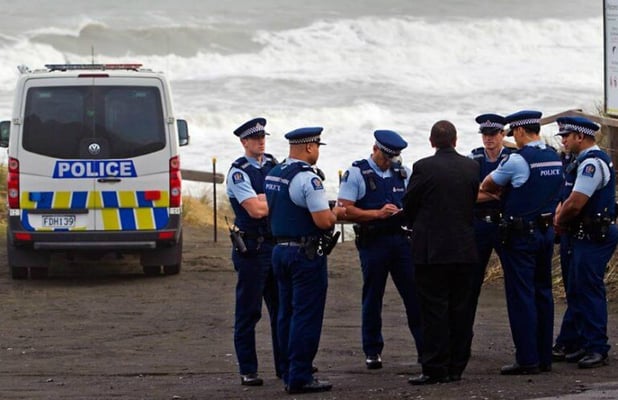Drowning death in community sparks summer safety warning

The death of an Indian man in a tragic drowning incident in West Auckland on the first official day of the summer season has once again raised concerns of water-safety in the Kiwi-Indian community.
In a tragic incident, an Indian man Akhil Tangri, 21, was found dead in the water at Maori Bay near Muriwai, West Auckland on Friday, December 1.
This summer season is already being forecasted to be scorching hot with more number of people expected to be plunging in water.
Water-safety continues to remain a big concern for the Kiwi-Indian community, given their well-renowned tag of being a relatively less water-friendly.
According to Water Safety New Zealand Drowning Prevention Report 2015 released by Water Safety New Zealand, in 2015 there was a surge in the number of Asian deaths due to drowning which amounted to 16 per cent of deaths at a per 100,000 rate of 3.0.
This is against national death per 100,000 rate of 2.0.
To aggravate it further, are two more reports released by Water Safety New Zealand earlier this year which suggest that all is not well with our collective ability to remain water-safe.
In July Water Safety New Zealand’s (WSNZ) Public Attitude and Behaviour Survey for 2017 has revealed that risky behaviour around water was slow to change.
The report argued that while safety messages are getting through risky behaviour is slow to change.
This is fully corroborated in the latest drowning incident in Muriwai where it was reported that the ill-fated boy was swimming along with his two mates when they all got in trouble and swept away by a high tide.
The tragedy could have been worse if the other two boys had not managed to reach to safety.
Although police have to still officially comment on the circumstances leading to the tragic incident, there is nothing beyond common sense to suggest that some risky behaviour around water was involved.
Similarly, the Water Safety New Zealand Drowning Prevention Report 2015 reveals that in 2015 maximum numbers of drowning casualties were within the 15-24 age groups. For obvious reasons, people in this age group needs to apply more common sense when enjoying summer holidays in beaches and rivers.
Another report released later in the year in September revealed that New Zealand children's water safety skills fall to unacceptable levels.
The study by Associate Professor Chris Button of Otago University had then revealed that New Zealand children lack the basic knowledge to save themselves in the water.
New Zealand has one of the worst rates of preventable drowning in the OECD and experts are already worrying that if this pattern continues, it will only get worse.
So it may be apt to assert in New Zealand Police's words to "not leave your common sense back home" and remind everyone about the water-safety tips to follow this holiday season.
Always remember that unlike as back in India or other South Asian regions from where we originally come from, New Zealand is largely a Do-It-Yourself (DIY) society where most of the things are to be done on our own, including taking responsibility and improving water awareness.
In this regard, the first thing to do this summer should be to clearly define responsibilities when going in groups with young children and families.
A special call of action for our international student community who in most cases are enjoying their first opportunity in life to be on their own, away from their overly-caring families back home are naturally more susceptible to a momentary lapse of judgement and not being water safe, is to make right choices in decision making.
Do not leave your common sense at home this summer when you go to rivers and beaches
The death of an Indian man in a tragic drowning incident in West Auckland on the first official day of the summer season has once again raised concerns of water-safety in the Kiwi-Indian community.
In a tragic incident, an Indian man Akhil Tangri, 21, was found dead in the water at Maori Bay near...
The death of an Indian man in a tragic drowning incident in West Auckland on the first official day of the summer season has once again raised concerns of water-safety in the Kiwi-Indian community.
In a tragic incident, an Indian man Akhil Tangri, 21, was found dead in the water at Maori Bay near Muriwai, West Auckland on Friday, December 1.
This summer season is already being forecasted to be scorching hot with more number of people expected to be plunging in water.
Water-safety continues to remain a big concern for the Kiwi-Indian community, given their well-renowned tag of being a relatively less water-friendly.
According to Water Safety New Zealand Drowning Prevention Report 2015 released by Water Safety New Zealand, in 2015 there was a surge in the number of Asian deaths due to drowning which amounted to 16 per cent of deaths at a per 100,000 rate of 3.0.
This is against national death per 100,000 rate of 2.0.
To aggravate it further, are two more reports released by Water Safety New Zealand earlier this year which suggest that all is not well with our collective ability to remain water-safe.
In July Water Safety New Zealand’s (WSNZ) Public Attitude and Behaviour Survey for 2017 has revealed that risky behaviour around water was slow to change.
The report argued that while safety messages are getting through risky behaviour is slow to change.
This is fully corroborated in the latest drowning incident in Muriwai where it was reported that the ill-fated boy was swimming along with his two mates when they all got in trouble and swept away by a high tide.
The tragedy could have been worse if the other two boys had not managed to reach to safety.
Although police have to still officially comment on the circumstances leading to the tragic incident, there is nothing beyond common sense to suggest that some risky behaviour around water was involved.
Similarly, the Water Safety New Zealand Drowning Prevention Report 2015 reveals that in 2015 maximum numbers of drowning casualties were within the 15-24 age groups. For obvious reasons, people in this age group needs to apply more common sense when enjoying summer holidays in beaches and rivers.
Another report released later in the year in September revealed that New Zealand children's water safety skills fall to unacceptable levels.
The study by Associate Professor Chris Button of Otago University had then revealed that New Zealand children lack the basic knowledge to save themselves in the water.
New Zealand has one of the worst rates of preventable drowning in the OECD and experts are already worrying that if this pattern continues, it will only get worse.
So it may be apt to assert in New Zealand Police's words to "not leave your common sense back home" and remind everyone about the water-safety tips to follow this holiday season.
Always remember that unlike as back in India or other South Asian regions from where we originally come from, New Zealand is largely a Do-It-Yourself (DIY) society where most of the things are to be done on our own, including taking responsibility and improving water awareness.
In this regard, the first thing to do this summer should be to clearly define responsibilities when going in groups with young children and families.
A special call of action for our international student community who in most cases are enjoying their first opportunity in life to be on their own, away from their overly-caring families back home are naturally more susceptible to a momentary lapse of judgement and not being water safe, is to make right choices in decision making.
Do not leave your common sense at home this summer when you go to rivers and beaches









Leave a Comment